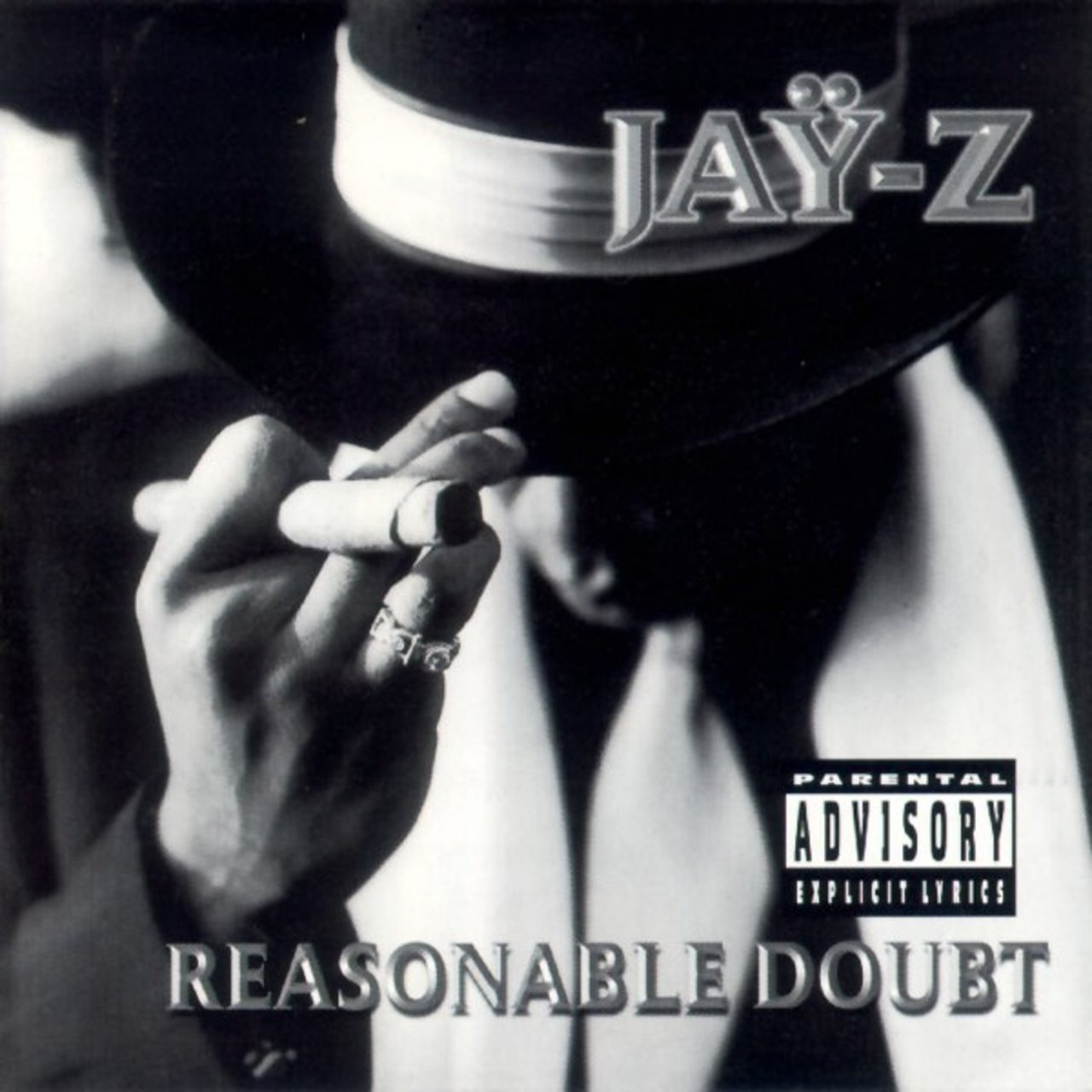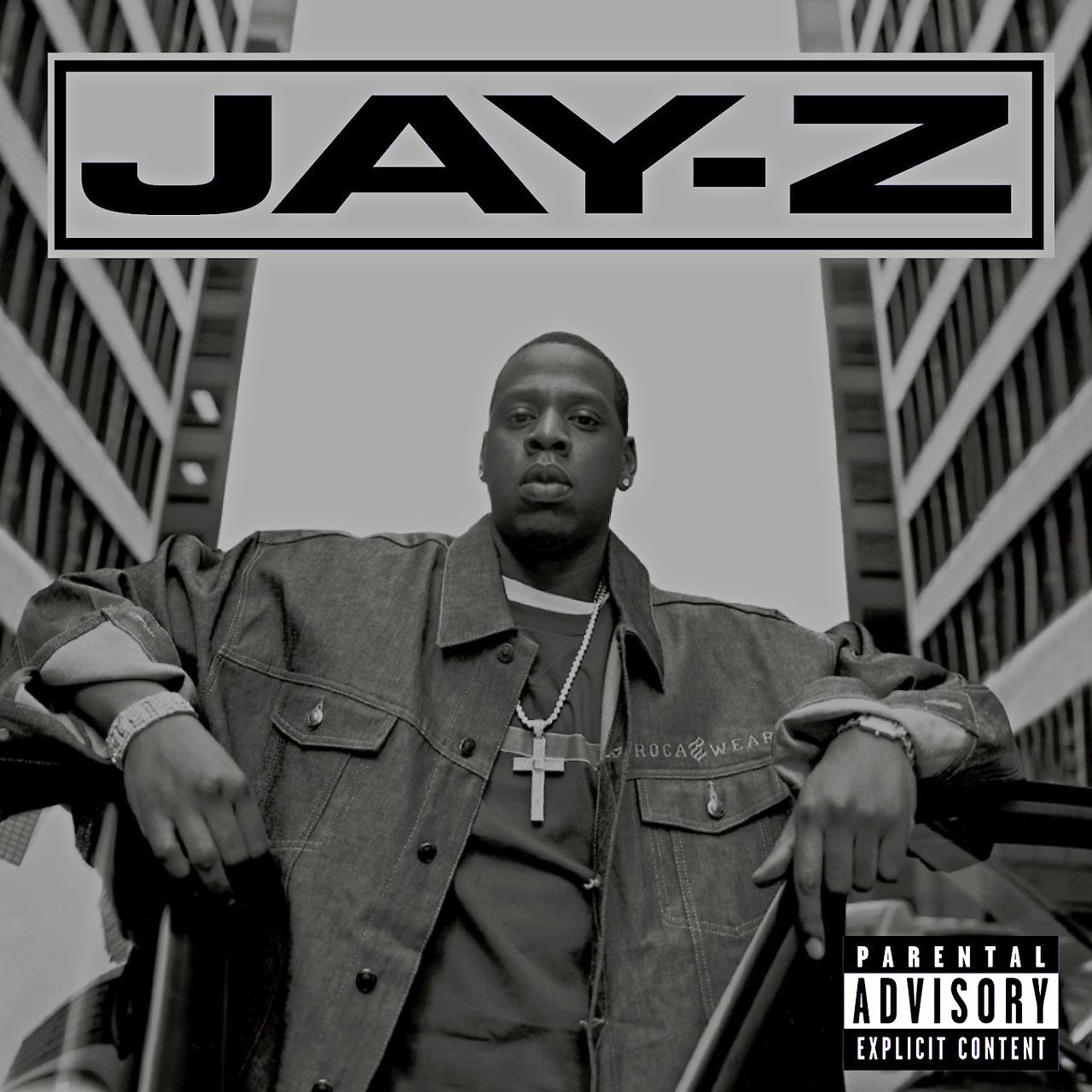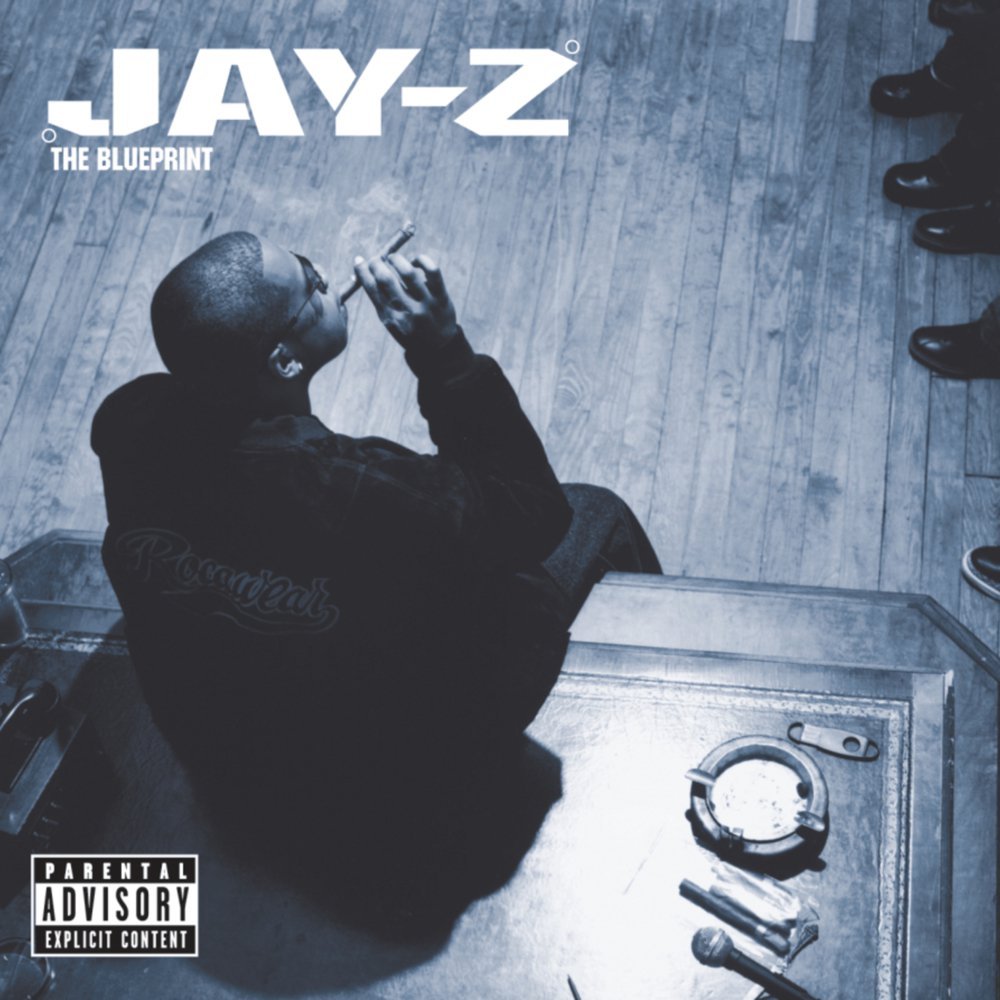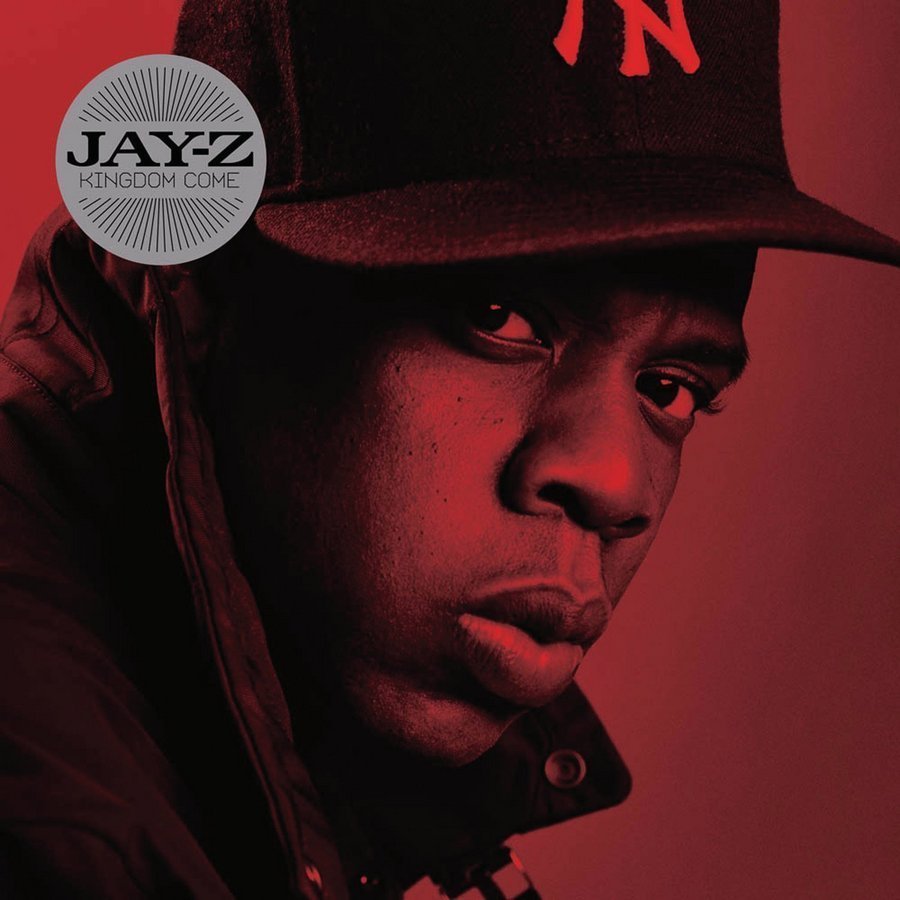Happy 25th Anniversary to Jay-Z’s third studio album Vol. 2... Hard Knock Life, originally released September 29, 1998.
The release of Vol. 2… Hard Knock Life by Shawn “Jay-Z” Carter 25 years ago completed the Brooklyn emcee’s ascendancy. Jay had been assuredly building his career for the better part of the 1990s, going from hypeman to Platinum artist. But his third album is where he became a superstar. After its success, there was no denying that the favorite son of the Marcy Houses in Bed-Stuy, Brooklyn. was a full-fledged phenomenon.
Vol. 2 was seen as a course correction for Jay-Z. His previous release, In My Lifetime, Vol. 1 (1997), was a certified Platinum seller that featured some great material. However, it was met with a mixed response by fans and critics. Jay had worked extensively with Puff Daddy’s Hitmen production collective for Vol. 1, embracing the idea of tailoring the album’s singles to more pop-leaning sensibilities. Though I very much enjoy Vol. 1, there’s no disputing that many of the album cuts featured the best he had to offer, while the singles were among his weakest efforts. At his core, Jay-Z really is an iconoclast and following trends was not his best look.
In response, Jay-Z stuck with his grind. He opened for Puff Daddy on his No Way Out tour. He filmed the hour-long Streets Is Watching (1998) film, playing a fictional version of himself still caught up in the drug game, while showcasing often unreleased music videos from his previous projects. He recorded numerous tracks for the film’s soundtracks, as well as other soundtracks and producer compilations.
Overall, Jay-Z refocused his approach. Though he still spoke about his success, he emphasized the journey over the destination. He often spoke about representing the voiceless, championing the residents of the Bed-Stuys from around the United States, detailing their struggles by recounting his own. He even projected humility, rapping how he had already accomplished enough to be happy three or four years into his solo career.
This approach resonated with listeners. Or maybe it was that Annie sample (more on that later). Regardless, Vol. 2 is the biggest album of Jay-Z’s career. The album was his first to reach #1 on the Billboard charts and went 5x Platinum. It won the GRAMMY award in 1999 for Best Rap Album. And it’s well-regarded to this day.
Vol. 2 might not be my favorite project by Jay-Z, but its impact is undeniable. I respect its audacity and fearlessness. Jigga went a different direction sonically, often counting on producers that he’d never worked with before to steer the album’s sound. It might not have ascended to the peaks of Vol. 1, but despite the risks he took, it doesn’t feature anything nearly as questionable as “The City Is Mine” or “(Always Be My) Sunshine.”
Watch the Official Videos:
Given its massive commercial success, it’s notable that there are very few conventional pop-oriented records. Most of the overt attempts at radio or club success are tracks that he had previously released through other projects. I still maintain that even though “Hard Knock Life (Ghetto Anthem)” was an absolute commercial smash, it was not a “safe” choice to build an album around. It’s a no-frills, mid-tempo track, with thumping drums and subtle bassline. Most (correctly) attribute its success to its hook, which famously samples the late 1970s Broadway cast’s production of Annie. It certainly wasn’t guaranteed that showtunes would resonate with such a wide and broad audience.
By now, the origins of the title track are well known: The 45 King had produced the song and shopped it to various past collaborators, like Queen Latifah, who passed on it. He eventually pressed the instrumental onto a record and gave it to Kid Capri, who was the house DJ for the No Way Out tour. Capri had hoped to use it for his upcoming Soundtrack To the Streets (1998) production compilation (more on that later) and was “testing” it out on the road. On the third or fourth stop of the tour, Jay heard the instrumental and approached Capri while the DJ was still on stage, asking about the beat. Capri called 45 King while still on stage and handed the phone to Jay so that the two could work out a deal. Jay and 45 King completed the song soon after the former left the tour.
Jay revealed in his book Decoded that he bullshitted the rights owner of the Annie musical in order to clear the sample. He recounted that he wrote a heartfelt letter about how he had won an essay-writing contest in seventh grade that earned him a trip to Manhattan to catch the show on Broadway. It was all a lie, but hey, the ends justify the means.
As Jay has said many times over the years, his take on “Hard Knock Life” echoes the classic rags-to-riches story depicted in Annie. And its catchiness is undeniable. It was a mainstay on radio and MTV, and it could be heard coming out of many a car during late 1998 and well into 1999. It’s still the biggest hit of Jay’s career.
The album’s other singles were also notable for their unorthodox approach, especially in terms of production. “N***a What? N***a Who? (Originators 99),” the album’s fourth single, features Jigga and longtime mentor Big Jaz rapping to a shuffling, twitchy Timbaland track. The song was one of Jay-Z’s first collaborations with Timbaland, after “Lobster & Scrimp” from the producer’s Tim's Bio: Life from da Bassment (1998) compilation. It’s also one of Timbaland’s earliest hip-hop productions with a rapper outside of his immediate camp (R.I.P. Magoo).
“N***a What?...” is a sequel to “The Originators,” from Jaz’s To Your Soul (1990). It was the first track that features verses from Jay-Z and showcases the pair delivering high octane verses at incredible speeds. Jay-Z and Jaz’s deliveries also take center stage here as well, with the two kicking unorthodox double-time flows. Jay-Z and Big Jaz were not the first emcees to rhyme with a double-time cadence, but very few sounded as good doing so as them. Their raps flow naturally, never sounding stilted or forced.
It has been largely forgotten that Vol. 2 featured some of Jay-Z’s earliest dalliances with retirement. The subtext of the project is Jigga envisioning himself stepping aside and passing the proverbial torch to Memphis Bleek. These plans are apparent from the album’s outset, as “Intro/Hand It Down” begins with former Roc-A-Fella intern Pain In Da Azz imitating Al Pacino, reciting a modified version of the closing monologue from Carlito’s Way. Bleek then launches into one of the strongest verses of his career, flowing over the simultaneously lush and rugged DJ Premier production. “Shit is constant, that’s why I pack the Johnson and Johnson for the nonsense,” he raps. “Who wants it?”
Enjoying this article? Click/tap on the album covers to explore more about Jay-Z:
Bleek appears again on “Coming of Age (Da Sequel).” The song updates the O.G. “Coming of Age” from Reasonable Doubt (1996), where the two spun a narrative about Jay taking a young Bleek under his wing. The song almost completely takes place over the span of 30 seconds, focusing on the thoughts of Jigga and Bleek. The latter, fueled by weed-induced paranoia, begins to doubt his mentor, while Jay recognizes the thoughts of betrayal in his protégé’s demeanor. The track effectively demonstrates how a myriad of thoughts can race through one’s mind in a very short period of time.
“Coming of Age (Da Sequel)” was produced by Swizz Beatz, who was making a name for himself at the time. His beats had been getting placed on albums throughout 1998, as he worked with artists like Busta Rhymes and Cam’Ron, and he had already produced two of his best-known tracks (DMX’s “Ruff Ryder’s Anthem” and N.O.R.E.’s “Banned From TV”) before Vol. 2 ever dropped. That said, his contributions to this album helped make him one of the most sought-after producers of the late 1990s/early 2000s.
To say Swizz is a “divisive” producer is an understatement. People tend to love or hate his production. Sometimes both. Simultaneously. “Money, Cash, Hoes” has certainly elicited many strong reactions, particularly in regard to its production and hook. The track features a loop of Swizz dragging his hand across his keyboard, pitched up and down as necessary. According to an interview with Complex, Swizz said the beat “started as a joke,” but he eventually refined it. In a separate Vibe interview, Swizz revealed that he first pitched it to Busta Rhymes, and then others, but none could figure out what to do with it.
Something about the song’s brazen obnoxiousness is still appealing a quarter of a century later. Jay-Z leans into the proverbial skid, conceiving a notoriously ridiculous chorus where he chants “Money, Cash, Hoes” over and over and over again, as DMX shouts “What!” at regular intervals. With his verses, Jigga rides the rhythm of the beat with a precision that I wouldn’t think was possible, well aware of the inevitable criticism. “I know they gonna criticize the hook on this song,” he acknowledges. “Like I give a fuck; I’m just a crook on this song.” DMX’s verse taps into his own ferocity, as he barks his rhymes with a familiar boisterous energy.
Swizz also produces “If I Should Die,” the most introspective entry on Vol. 2. Jay teams with Da Ranjahz, a Crown Heights based duo that rolled with Roc-A-Fella since its nascent stages. Jigga, Wais, and Half Dead all contemplate their lives and the impacts they believe they’ve made on this Earth, deciding that should death come, they’re at peace. With the song’s final verse, Jay-Z ponders the potential realities of the afterlife, envisioning re-connecting with Biggie and 2Pac, but still wondering if he’ll be condemned to eternal damnation.
“Ride Or Die” has slipped through the cracks when discussing Vol. 2, which is a shame, since it’s one of the most enjoyable songs on the album. Produced by Stevie J of the Hitmen, it features some of Jigga’s best smack talk. Though many fans favor Thoughtful Jay-Z or Wizened Street Philosopher Jay-Z, Brash and Arrogant Jay-Z is still the most entertaining Jay-Z. His first verse on the song is an all-time great, as he boasts, “You see the respect I get every time I come through / Check your own videos, you’ll always be number two / N****s talking really greasy on them R&B records / Well, I’m Platinum a million times, n***a, check the credits.”
Jay-Z channels his disappointed contempt on “A Week Ago,” one of the best anti-snitching anthems ever recorded. Few artists maintain the balance between bemusement and disgust like Jay, as he laments with sneering disgust his former partner’s decision to sell out his collaborators to the police. The hook, featuring Oakland legend Too $hort, makes everything that much more entertaining.
Originally appearing on the Rush Hour soundtrack (1998), “Can I Get A…?” is another of the biggest hits of Jay-Z’s career. DJ Irv and Lil Rob hook up a bouncy keyboard driven track that still maintains its rough edges. The track is also notable as it featured Ja Rule. Ja wrote the song’s hook and has maintained that the song was originally intended to be his. It also features the first appearance of Amil, billed as a member of Major Coins. Amil would appear on numerous Jay-Z and Roc-A-Fella related projects over the next few years.
Vol. 2 wraps up weirdly, ending with a string of cuts that were either previously released or about to be released “soundtracks.” “It’s Like That” would soon appear as the opening track on Kid Capri’s aforementioned Soundtrack To the Streets (1998) and “Money Ain’t a Thing” was taken from Jermaine Dupri’s Life In 1472 (The Original Soundtrack) (1998). The latter is the sole track on Vol. 2 that falls into the “shiny suit rap” category. Jay-Z, trading bars and verses with Dupri, gives a deft lyrical performance about the joys of material wealth. “Multi 'til I close up, it's all basic,” he boasts. “I been spending $100s since they had small faces.”
“It’s Alright,” which first appeared on the Streets Is Watching soundtrack (1998), is the best song in this final stretch. The third collaboration with Bleek on Vol. 2, it has the feel of a late 1980s banger. With Jay and Bleek rapping over samples from Talking Heads’ “Once In a Lifetime” and Kraftwerk’s “Hall of Mirrors,” it sounds like something that would be played in the final quarter-hour video block on Yo! MTV Raps. That is very much a compliment.
Vol. 2 really should have ended with “Reservoir Dogs.” All three members of The Lox, Sauce Money and then young up-and-comer Beanie Siegel join Jay-Z on the exuberant posse cut, the best to appear on a Jay-Z album. Erick Sermon and Rockwilder hook up a brisk and soulful track, looping up the iconic guitar sample from Isaac Hayes’ “Theme From Shaft.”
Every emcee gives a great performance, as Sheek Louch drunkenly contemplates the Biggie Smalls poster on his wall and Styles P spends his verse’s first six bars throwing subliminal shots at Jigga. The song is Beanie Sigel’s grand introduction to the world, and he also rises to the occasion. He would go on to have the type of successful solo career through the mid ’00s that Jay had wanted for Memphis Bleek. Sauce Money delivers one of the best verses of his career, deriding “you Phil Jackson n****s on that Bull shit.” But even amongst this embarrassment of riches, Jay brings the track home, exuding an efficient cool. “How the fuck you gon' stop us with your measly asses?” he states. “We don’t stop at the tolls, we got E-Z Passes.”
Vol. 2… Hard Knock Life was Jay-Z’s commercial pinnacle, setting into motion the rest of his successful career. While his combination of street savvy and commercial appeal was always going to ensure his success, it’s hard to envision him as the titan he is today without “Hard Knock Life” and Vol. 2 as a whole. The Annie sample may have been the catalyst, but Jay’s wide range of skills holds everything together, as he spoke directly to his audience in ways that he rarely would again.
Listen:





